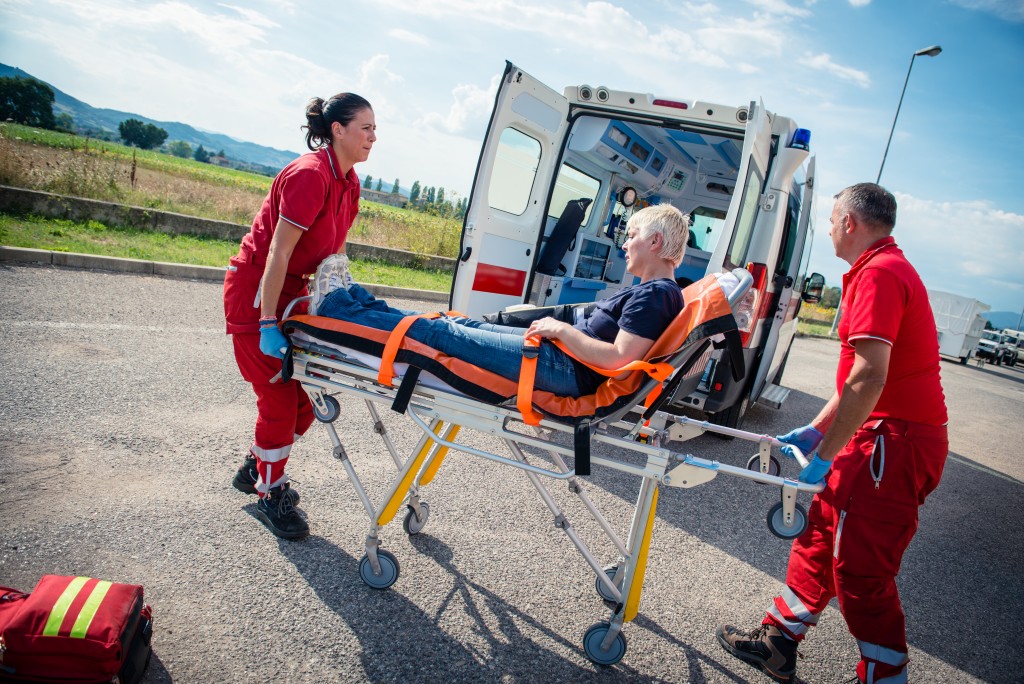A first-responder is a hero within the community they serve. When anyone is in distress due to an accident, an illness, or a crime committed against them, they rely on first-responders to bring them to safety.
In the United States, help is always swift because first-responders are always ready to be deployed to wherever they are needed. They face natural disasters, acts of terrorism, and other potentially dangerous situations without second-thought for the service of the Americans.
The role of a first-responder is tough, but they do it out of duty to the people.
There are different types of first-responders: the police, firefighters, paramedics, and emergency medical technicians (EMT). Paramedics and EMTs are the people deployed when the 911 caller reports a medical emergency. For example, an elderly person trips and falls, sustaining an injury that prevents them from moving. Usually, the dispatcher sends the paramedics and the EMTs. A vehicular accident where people have been hurt will also need healthcare workers around.
How does one become an EMT?
Paramedics and EMTs go through intensive training in order to respond to an emergency as best as possible. In both roles, schooling is necessary. There are EMT training centers across the nation that prepare aspiring first-responders for the challenges they will face in the real world. A paramedic also needs to pass a series of training levels before they are sent to the field.
Both need to earn a certificate to work as a paramedic and an EMT.
However, to become a first-responder, technical knowledge would not be enough. There are other skills that are equally important to the job but could not be learned in school or during training. Here are a few requirements needed before one can become a paramedic or EMT.
Problem-Solving Skills
Every adult needs to develop and improve their problem-solving skills because it would be necessary for the workplace. However, it is more important for paramedics and EMTs to sharpen their problem-solving skills, and here is why.
When there is a natural disaster or an accident, you would need to evaluate the situation and make the right actions. It is crucial that the steps you take are right because one wrong move might cause a person’s life.
But, what makes the task even more difficult than a regular office job is the time constraint. The clock is ticking. You do not have hours to spare to create a plan and carefully execute it. It has to be done as quickly as possible to save lives.
Listening and Communication Skills

First-responders require the input of witnesses, patients, parties involved, and law enforcement. You need to figure out what happened, who is hurt, and which body parts are in pain. You would be speaking to people who are under trauma, stress, and immense discomfort. However, despite their willingness to be involved, you need to coax important information out of them in order to make the right moves.
Compassion
Compassion is a skill that all healthcare workers should have, but not a lot exhibit, To be good at your job, you need to have compassion for your patients and the people you encounter.
When people call 911, they are experiencing extreme distress. It is part of your role to provide for their medical needs and emotionally support them as they go through this difficult experience.
Be Prepared for Challenges Ahead
Being a first-responder is not easy. You are guaranteed to encounter situations that are very unusual and may inflict secondary distress or trauma.
One study found that first-responders, including paramedics and EMTs, are at risk of developing a post-traumatic disorder, or PTSD. They encounter the same situations as the callers, but they do not often receive the same care and treatment.
As a result, some of them may experience flashbacks and nightmares, extreme guilt and anger, anxiety and worry, difficulty sleeping or eating, and losing interest in hobbies.
In the study, researchers found that 60% of first-responders had low levels of secondary traumatic stress. Meanwhile, 39% had moderate levels of secondary traumatic stress. Up to 1% experience extreme levels of secondary traumatic stress.
Moreover, stress and burnout. The emotional toll, as well as the physical demands of the job, leads to negative feelings and thoughts.
Becoming a first-responder is one of the best things that you can do for your community. It is very challenging and, sometimes, it is a thankless job. However, you are saving lives and making a difference in the lives of your neighbors, friends, and all the people you encounter. That is the greatest reward despite the risks.

